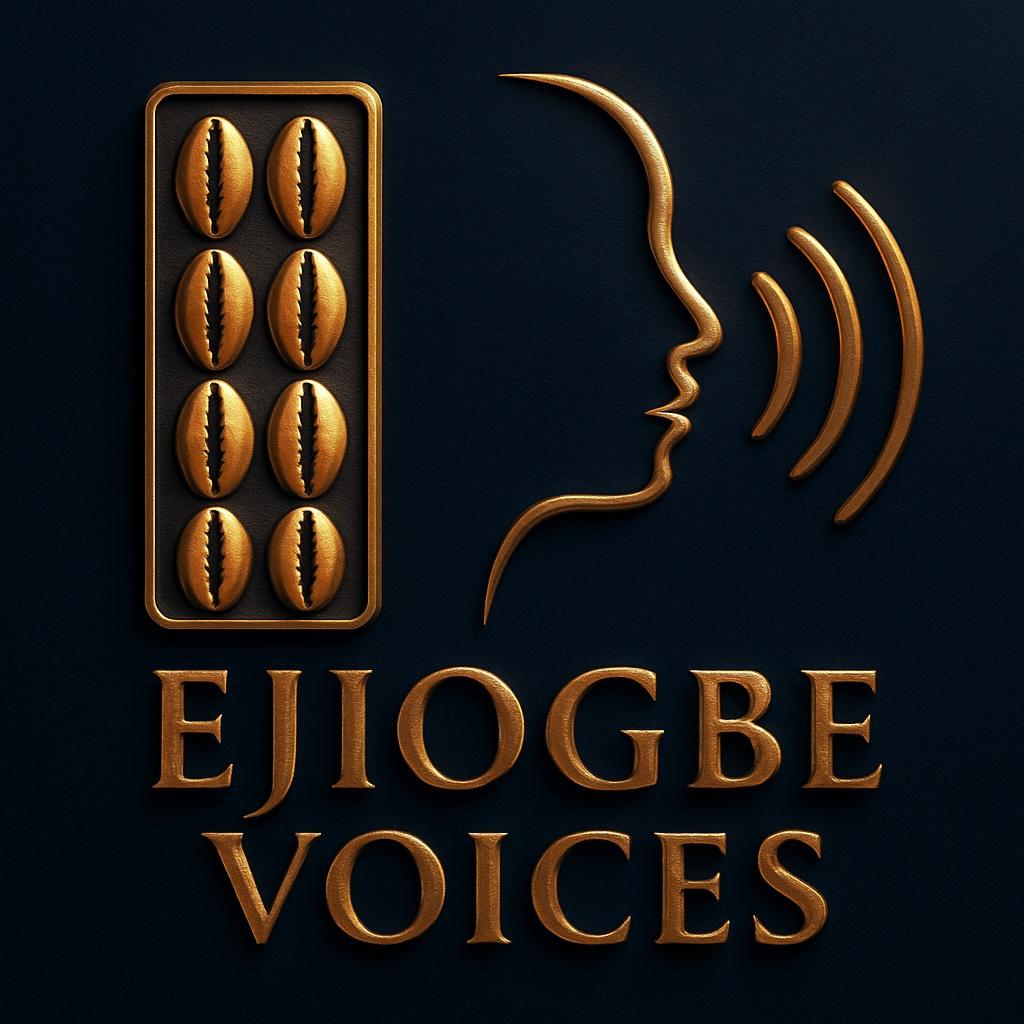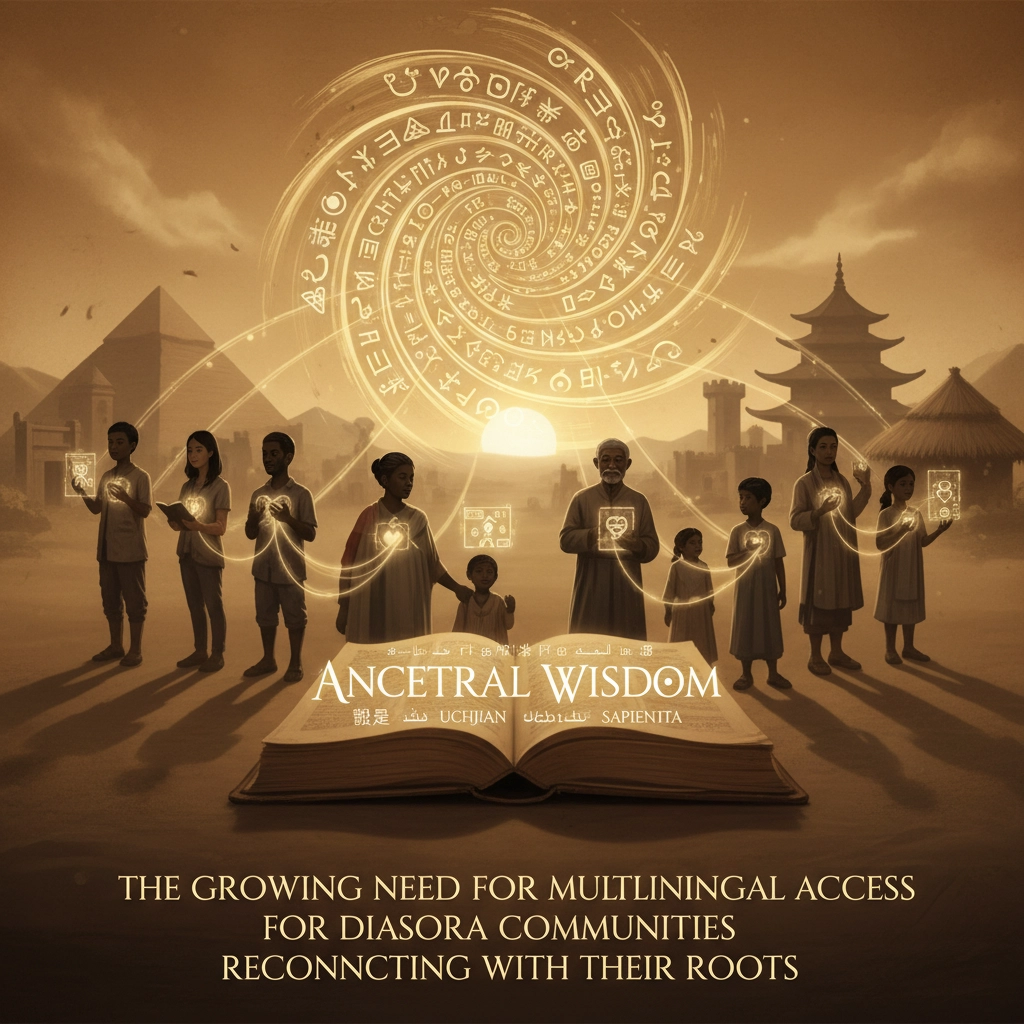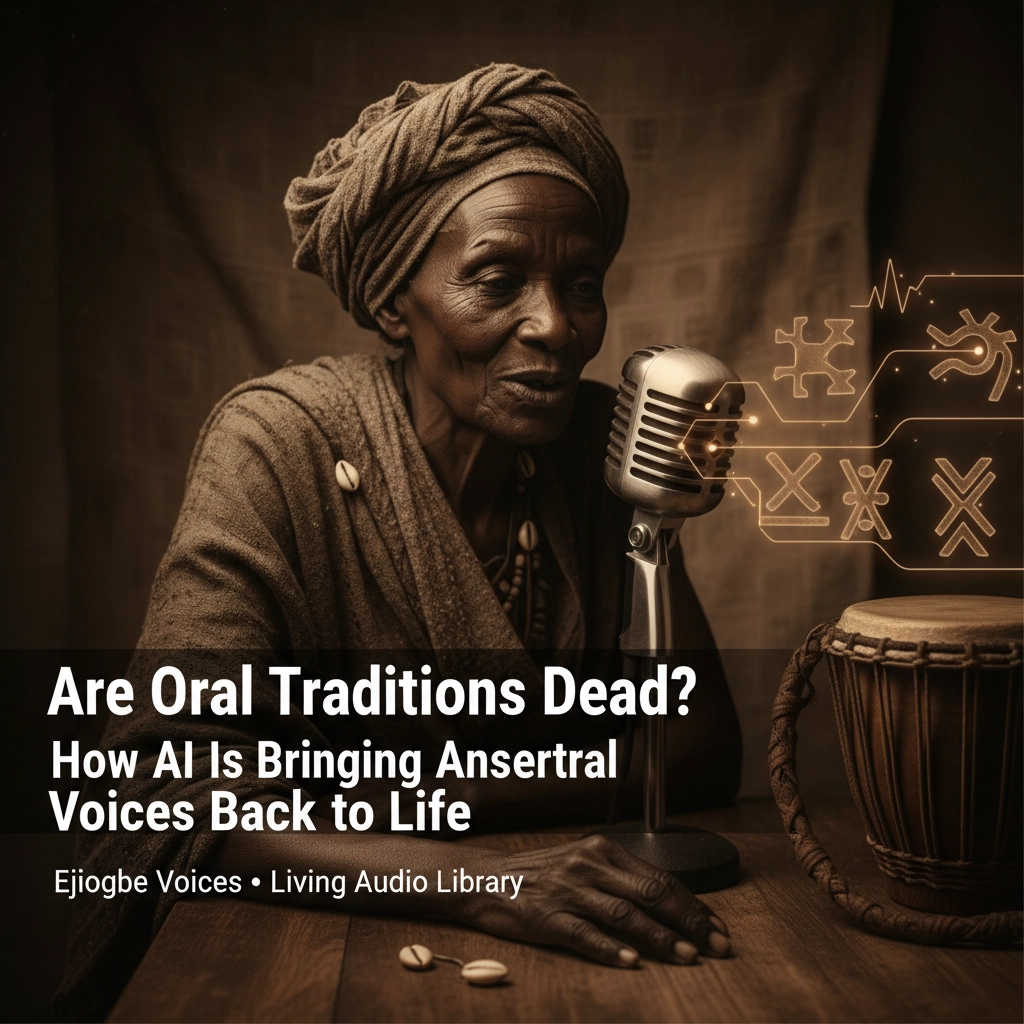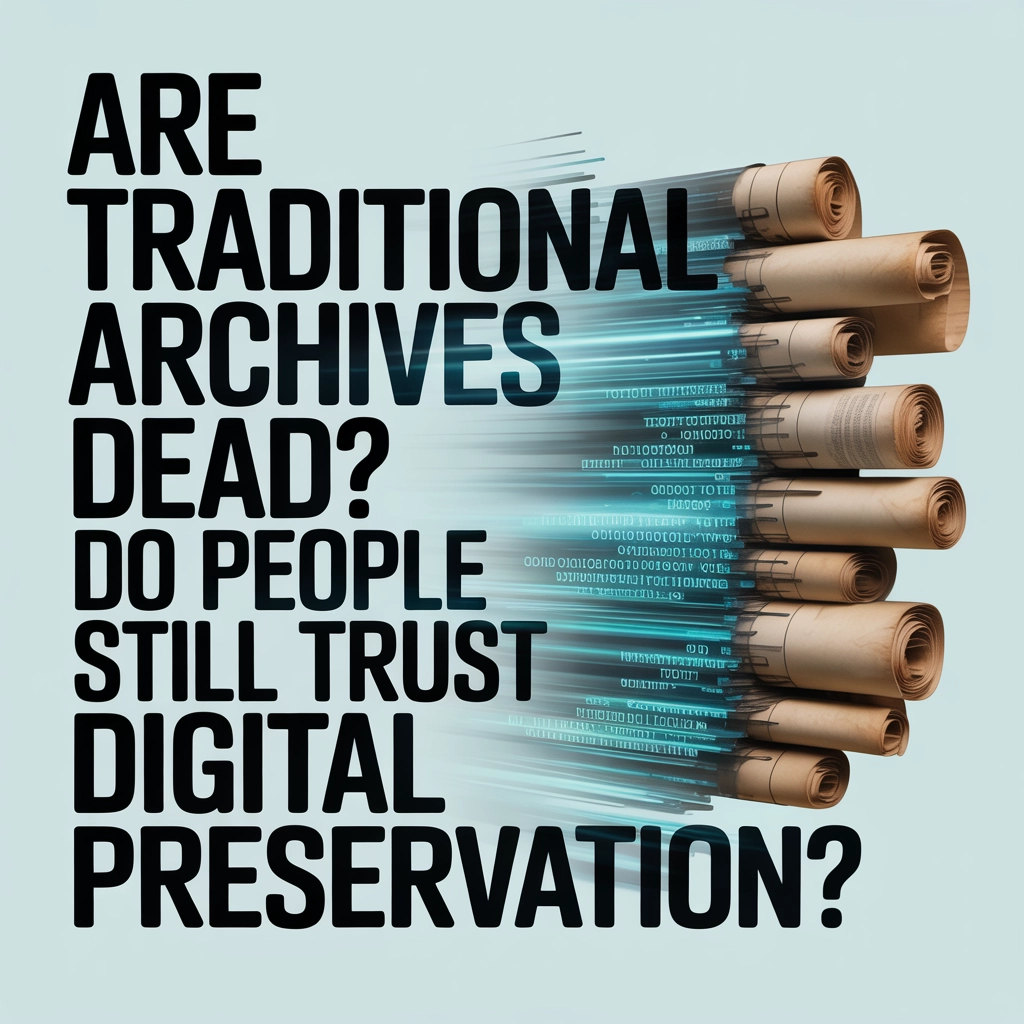The threads that connect us to our ancestors often flow through the languages they spoke, the prayers they whispered, and the wisdom they carried across generations. For diaspora communities worldwide, these sacred connections face an unprecedented threat as heritage languages disappear at an alarming rate: sometimes vanishing entirely within just three generations.
Today, we witness a profound awakening among diaspora communities who refuse to let their ancestral voices fade into silence. They're demanding something that should be their birthright: multilingual access to the wisdom their elders have safeguarded for centuries.
The Silent Crisis of Linguistic Inheritance
Across the globe, over 400 languages are spoken in linguistically diverse nations, yet many heritage languages teeter on the edge of extinction within diaspora communities. This isn't merely about losing vocabulary: it's about severing the sacred bonds that connect generations to their deepest cultural truths.
Consider the profound spiritual concept of ase in Yoruba tradition: the divine power given by a higher force. No English translation can capture its full essence or the emotional resonance it carries for those who understand its true meaning. When communities lose access to such terms in their original languages, they lose access to entire worldviews that have sustained their people through centuries of challenge and triumph.
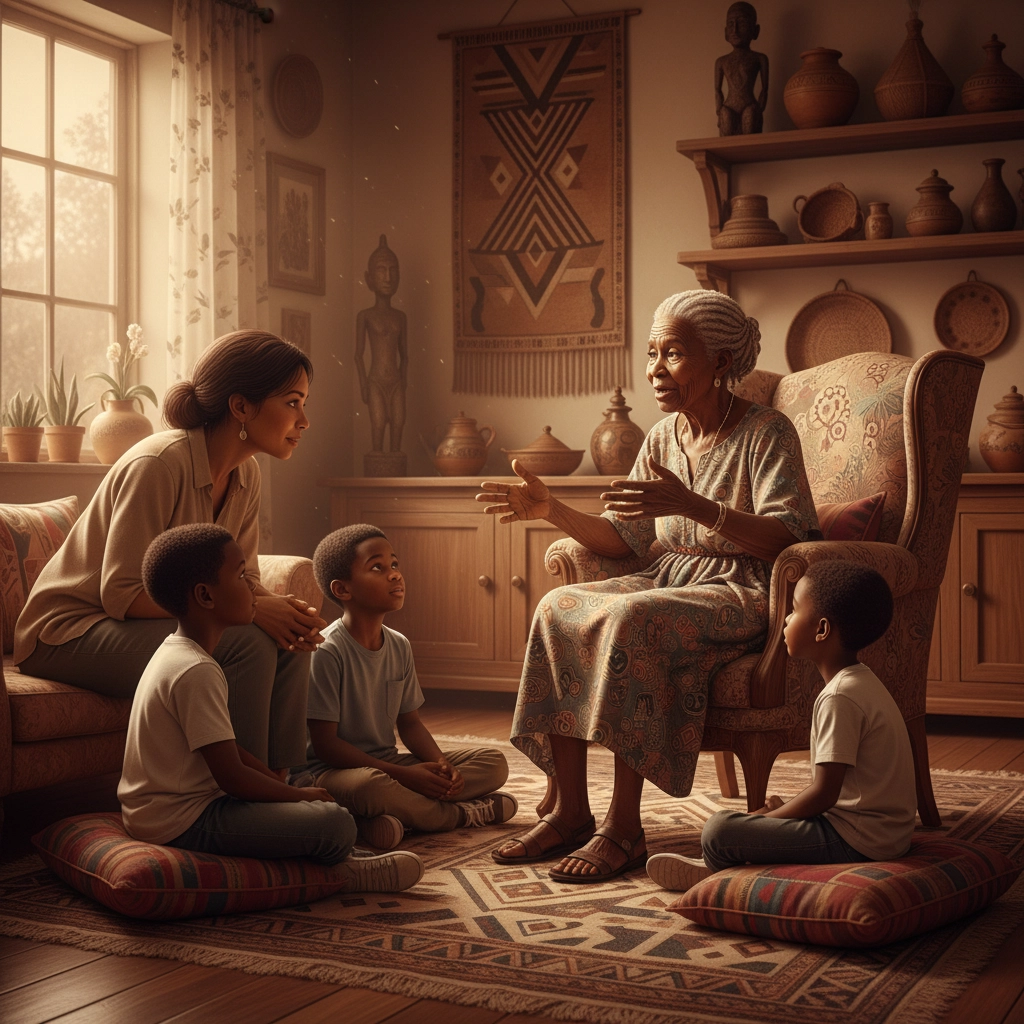
The pattern unfolds predictably: first-generation immigrants maintain their native languages, their children become bilingual, and their grandchildren often speak only the dominant language of their new homeland. With each linguistic transition, ancestral knowledge becomes more distant, more diluted, until eventually it's lost entirely.
Language as Sacred Vessel: Where Wisdom Lives
Heritage languages serve as living repositories of ancestral wisdom: not merely words, but entire systems of understanding that encompass healing practices, spiritual guidance, and community-building strategies. These languages carry the DNA of survival, preserving the very knowledge that enabled communities to endure colonization, displacement, and cultural suppression.
In African diaspora communities, elders hold profound wisdom about traditional healing, spiritual practices, and cultural ceremonies that exists primarily in their native tongues. When language transmission breaks down, younger generations find themselves cut off from this inheritance: like having a vault of treasure with no key to unlock it.
The wisdom embedded in heritage languages often cannot be adequately translated. It lives in the cadence of traditional songs, the specific terminology of healing practices, and the metaphorical richness of ancestral storytelling. When communities lose linguistic access to these treasures, they lose dimensions of their cultural identity that shaped their ancestors' resilience and strength.
The Healing Power of Ancestral Voices
Multilingual access to ancestral wisdom offers something that modern psychology alone cannot provide: multidimensional healing that addresses both individual trauma and generational wounds. When diaspora community members reconnect with prayers, teachings, and guidance in their heritage languages, they experience healing that resonates at cellular levels.
Research reveals that authentic prayers conducted in native languages create deeper emotional connections and more meaningful spiritual experiences than translated versions. A Nigerian family in Minneapolis discovered this truth when they began conducting their Sunday prayers in Yoruba: suddenly, their faith traditions felt more alive, more connected to the generations who came before them.
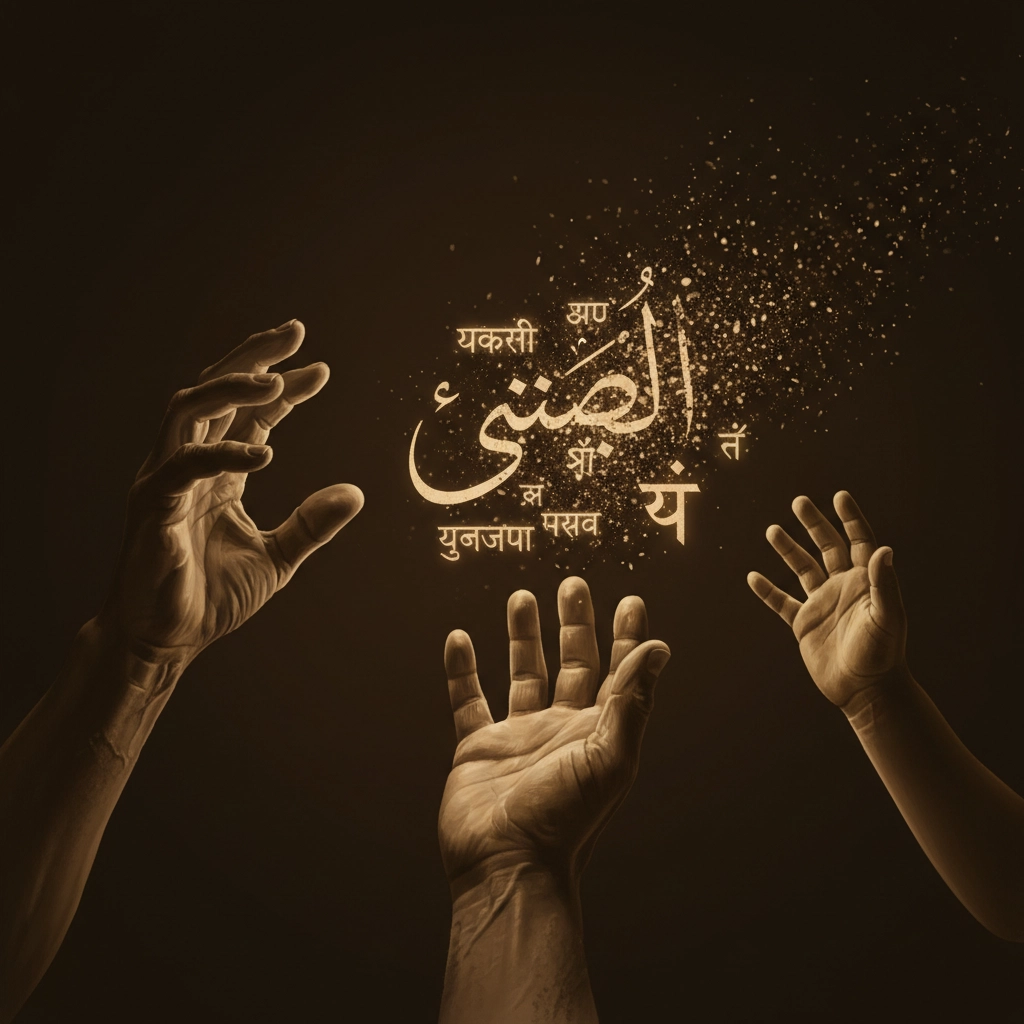
This linguistic reconnection serves as a bridge between diaspora communities and their ancestral cultures, enabling interaction with traditional art, literature, and spiritual practices in ways that translations simply cannot replicate. The healing extends beyond individuals to entire family systems, addressing what many describe as "stuck and unfinished places" in their personal and collective development.
Breaking Down Barriers: Innovation Meets Tradition
The barriers preventing multilingual access to ancestral wisdom are real and significant. Language proficiency gaps, especially among younger generations, often exclude community members from full participation in cultural practices. Traditional knowledge holders: our precious elders: may lack the technological tools to preserve and share their wisdom widely.
However, innovative solutions are emerging that honor tradition while embracing modern possibilities. Digital platforms now promise to keep heritage languages strong and adaptive for future generations, offering new pathways for preserving and transmitting ancestral knowledge.
Progressive communities are developing inclusive multilingual approaches that blend heritage languages with more widely spoken languages, ensuring no one is excluded while maintaining the depth and authenticity that comes from accessing wisdom in its original form. Translation tools, visual aids, and bilingual leadership are helping to bridge linguistic gaps without compromising cultural integrity.
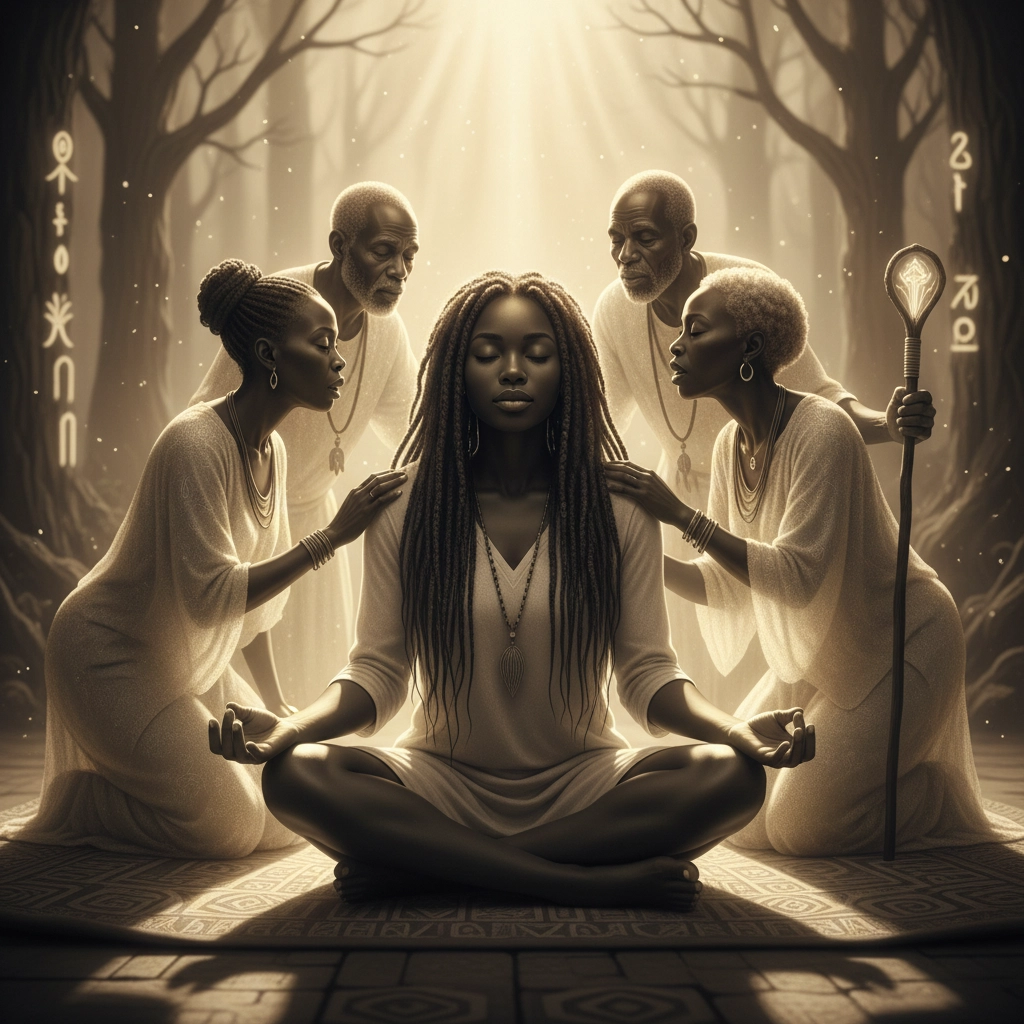
Technology as Cultural Guardian
The marriage of technology and ancestral wisdom represents one of the most promising developments in cultural preservation. Modern digital tools can capture not just the words of our elders, but the intonation, the emotional cadence, and the spiritual energy that makes their teachings so powerful.
Voice recognition technology, translation applications, and multimedia platforms are being adapted to serve diaspora communities' specific needs. These tools don't replace traditional knowledge transmission: they amplify it, making ancestral voices accessible across time zones, generations, and linguistic barriers.
The goal isn't to digitize culture, but to democratize access to the wisdom that rightfully belongs to all members of diaspora communities. When a grandmother's healing songs can be preserved with perfect fidelity, or when traditional ceremonies can be documented in multiple languages, we create bridges that span generations and geographical distances.
Community-Led Preservation: Honoring Our Elders
The most effective approaches to multilingual access emerge from within communities themselves, honoring the knowledge holders who have safeguarded ancestral wisdom through decades of challenge. Our elders aren't just sources of information: they're living libraries whose every story, prayer, and teaching carries generations of accumulated wisdom.
Community-led preservation efforts recognize this truth by centering elders' voices and expertise while providing them with the tools and support they need to share their knowledge more widely. This approach ensures that cultural preservation remains authentic, respectful, and aligned with traditional values of honoring those who came before us.
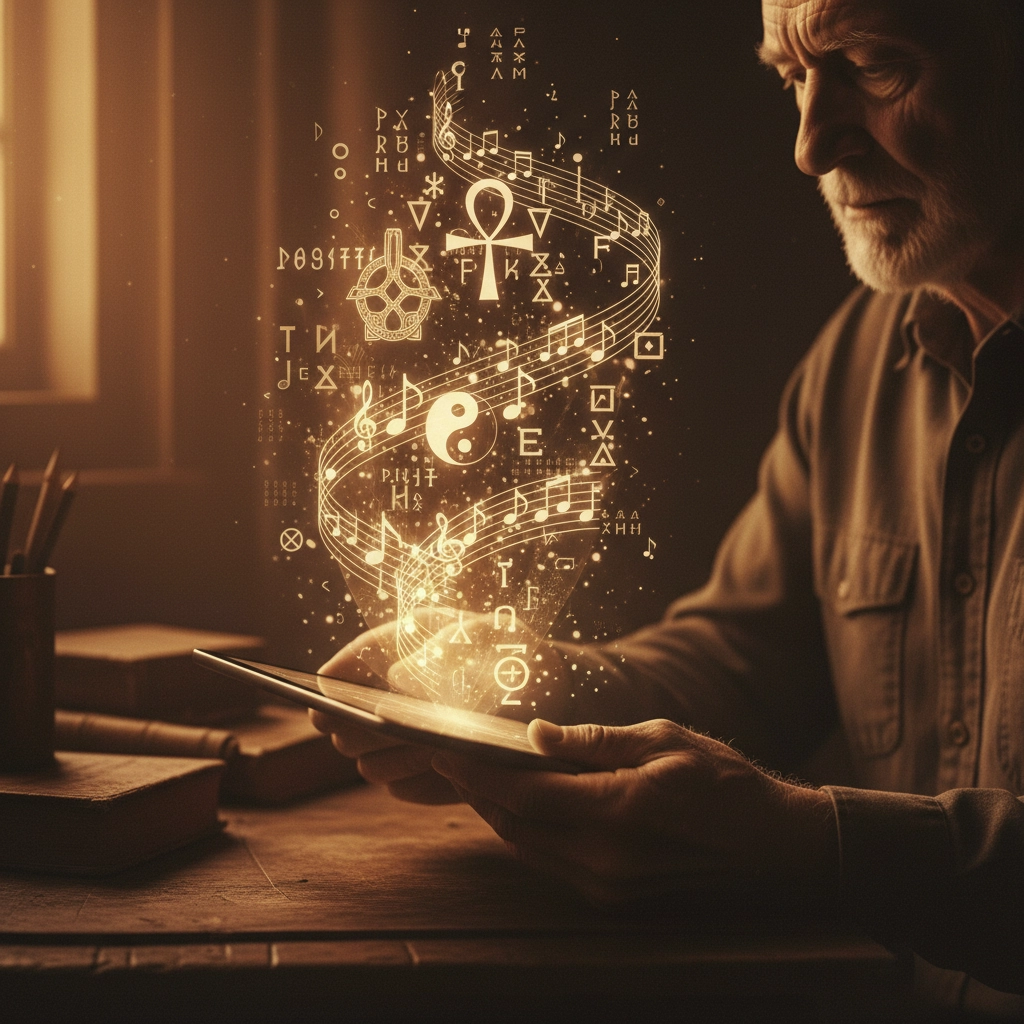
The Ripple Effects of Reconnection
When diaspora communities gain multilingual access to their ancestral wisdom, the benefits extend far beyond individual healing or cultural preservation. Children develop stronger cultural identity and pride. Families experience deeper bonds across generations. Communities become more resilient and better equipped to navigate the challenges of living between worlds.
This reconnection also strengthens the global tapestry of human wisdom. Each heritage language preserved, each traditional practice documented, each elder's voice recorded contributes to our collective human inheritance. The wisdom of diaspora communities belongs not just to them, but to all of humanity.
A Vision for Cultural Continuity
The growing recognition of multilingual access needs represents more than a trend: it's a movement toward cultural justice and generational healing. Communities are refusing to accept inevitable language loss, instead actively working to reverse the trend through systematic preservation efforts and innovative engagement strategies.
This work requires urgency. Each day that passes without adequate multilingual preservation represents potentially irreversible losses of ancestral knowledge. Yet the growing awareness of these needs, combined with technological innovations and unwavering community dedication, offers profound hope for preserving and revitalizing these crucial cultural resources.
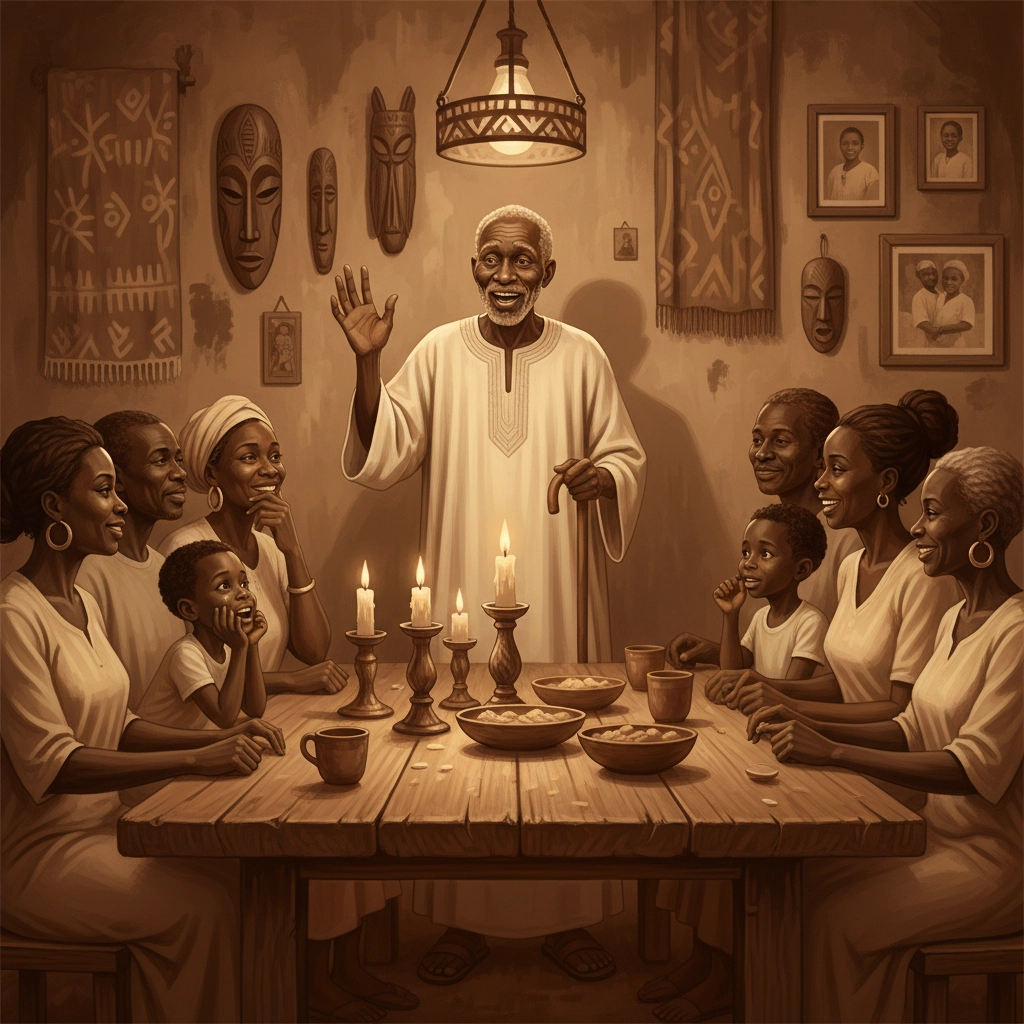
As diaspora communities continue navigating the delicate balance between integration and preservation, multilingual access to ancestral wisdom emerges not as luxury, but as essential infrastructure for cultural survival and flourishing.
The investment in these practices strengthens individual communities while contributing to the broader linguistic and cultural diversity that enriches our shared human experience. When we honor our ancestors' voices by ensuring their wisdom remains accessible to future generations, we fulfill our sacred duty as cultural stewards and bridge builders between past, present, and future.
Our ancestors spoke so we could remember. Now it's our turn to ensure their voices continue to guide us home.
